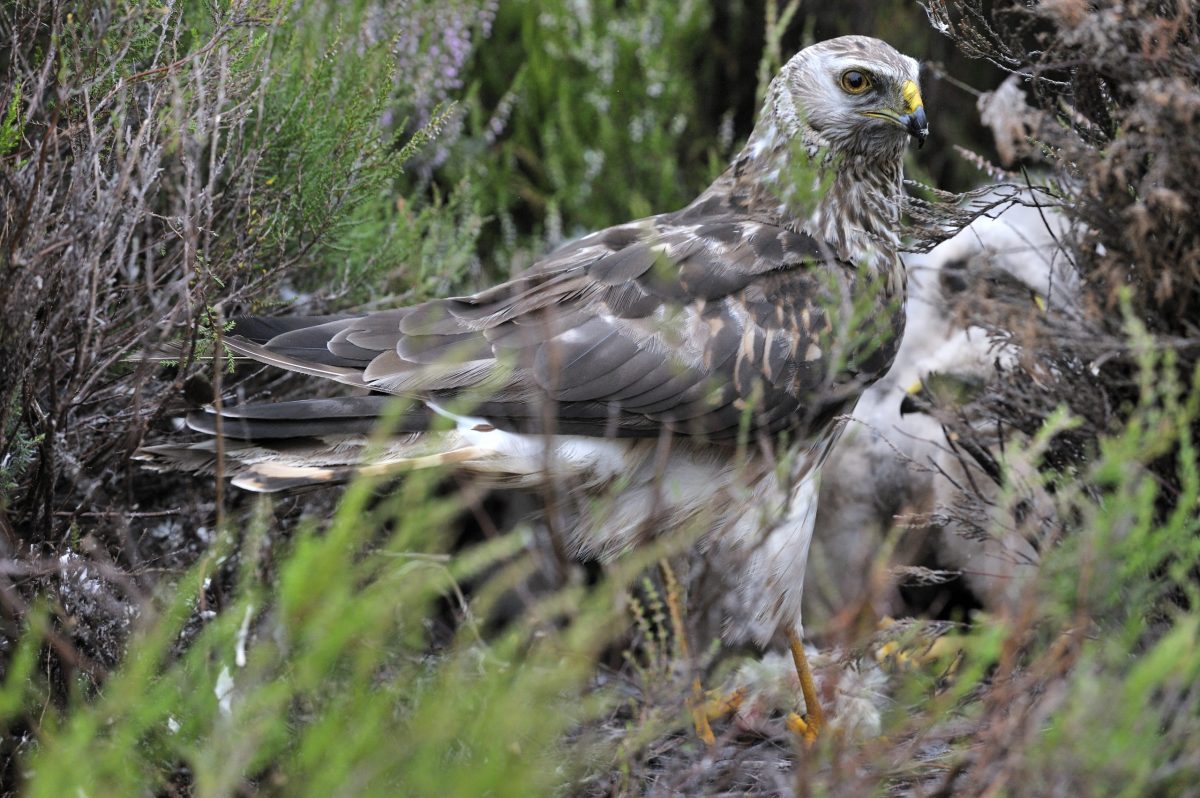A SCOTS estate has been handed a three year restriction on the use of general licenses following “clear evidence” of a wildlife crime resulting in the death of a bird.
Lochan Estate, Perthshire, has had its use of general licenses restricted by Scottish natural heritage body NatureScot.
NatureScot says the decision was made on the basis of evidence provided by Police Scotland of wildlife crime against birds.
Evidence included a satellite-tagged hen harrier, named Rannoch, which was found dead on Lochan Estate in an illegally set spring trap.

General licenses allow landowners or land managers to carry out actions which would otherwise be illegal, including controlling common species of wild birds to protect crops or livestock.
Tay and Torridon Estates Ltd. and Culfargie Estates Ltd. are the current owners of Lochan Estate, and according to its website, the Estate has been owned by the same family since the middle of the last century.
Donald Fraser, NatureScot’s Head of Wildlife Management said: “We are committed to using all the tools we have available to tackle wildlife crime.
“In this case, there is clear evidence that crime involving a wild bird occurred on this property.
“Because of this, and the risk of more wildlife crimes taking place, we have suspended the general licenses on this property for three years.
“They may still apply for individual licenses, but these will be closely monitored.
“This measure will help to protect wild birds in the area, while still allowing necessary land management activities to take place, although under tighter supervision.
Donald continued: “We believe this is a proportionate response to protect wild birds in the area and prevent further wildlife crime.
“We work closely with Police Scotland and will continue to consider information they provide us on cases which may warrant restriction of general licenses.
“The detection of wildlife crime can be difficult but new and emerging technologies, along with a commitment from a range of partners to take a collective approach to these issues, will help us stop this from occurring in the future.”
Speaking on the emplacement of the restriction, Ian Thomson, RSPB Scotland’s Head of Investigations said: “We welcome the announcement by NatureScot of a general licence restriction covering the Lochan Estate in Strathbraan, Perthshire.”
“One of the reasons given for this restriction was the illegal killing of a hen harrier, ‘Rannoch’, caught in an illegally-set trap, leading to it suffering a lingering and agonising death.
“Despite decades of legal protection, this species continues to be the regular victim of routine acts of persecution across Scotland’s grouse moors.”
“While the imposition of this sanction is positive news, it has become increasingly clear that the threat of such a penalty has little effect on those whose sole motivation is the maximising of grouse numbers at all costs.
“Until sporting estates face the potential removal of the right to shoot, there is no meaningful deterrent to those who continue to slaughter our birds of prey.
“With this in mind, we call upon the Scottish Government to act soon to fulfil its commitment to regulate the grouse shooting industry.”
Restrictions will prevent people from using the general licenses on the land in question for three years.
This period can increase if more evidence of offences comes to light.
Scottish estates have previously come under fire for similar offences.
Last year, Leadhills Estate, South Lanarkshire, had its restriction on general licenses extended until 2023 after police were alerted to more wildlife crime on the property.
This followed the original removal of the estate’s license in 2019 after a revelation of birds of prey being slaughtered on its land.
Similarly, Raeshaw Estate, Scottish Borders, had its license to control species such as crows and magpies on its estate removed in 2015.
This came after skeletal remains of protected species and illegal traps were found by police officers during a raid.

